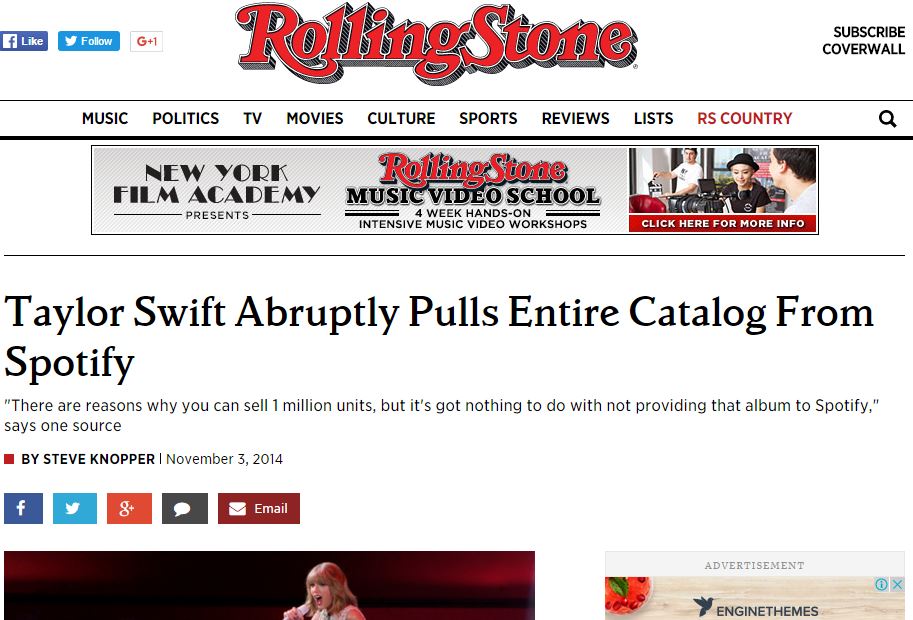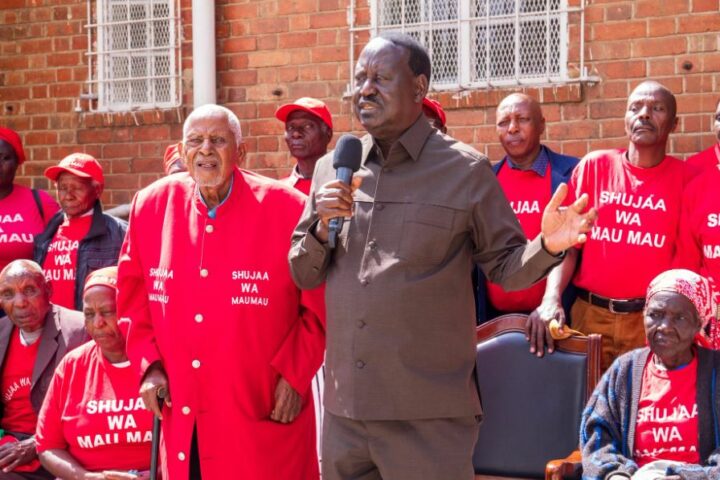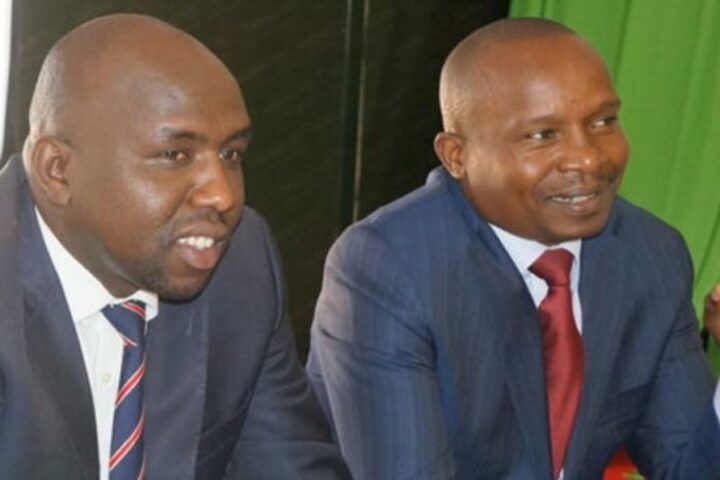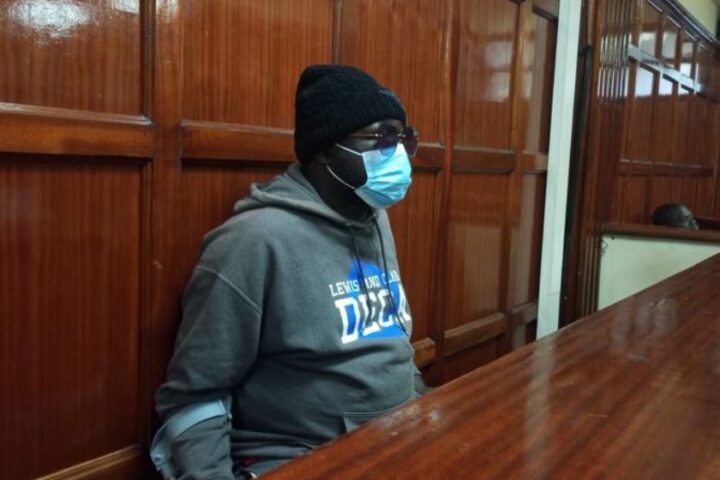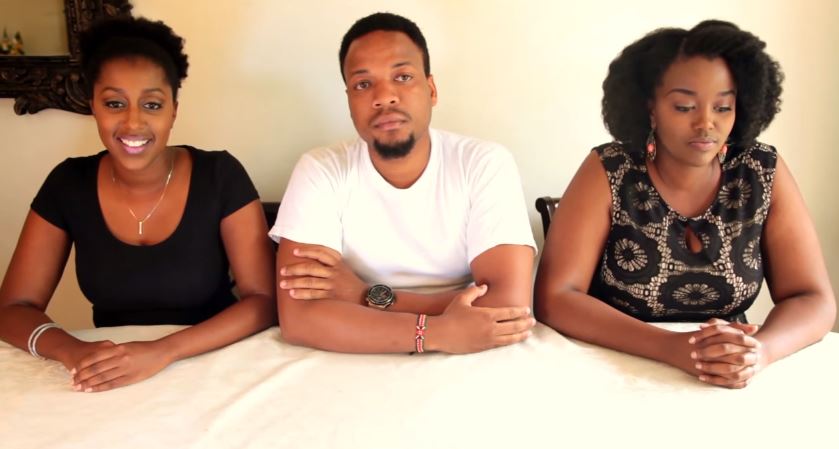 When Elani released a video on Wednesday explaining their one year silence, they were applauded for their bravery in the fight against artists’ exploitation and in extension corruption at the Music Copyright Society of Kenya (MSCK).
When Elani released a video on Wednesday explaining their one year silence, they were applauded for their bravery in the fight against artists’ exploitation and in extension corruption at the Music Copyright Society of Kenya (MSCK).
Despite releasing mega hits in 2014, receiving massive airplay on TV, Radio, clubs and matatus, Elani were paid a meager Sh31,000 for the whole year. It is illogical that the value of their work in what was their breakout year was valued at $300. That translates to less than Sh10,000 each for the whole year – an amount not enough to pay house rent for a month.
It happened that at the time they received that cheque, they were in debt. They went to MCSK and demanded answers. MCSK blamed radio stations, claiming they don’t pay, but Elani were not satisfied. They contacted a few stations and MCSK was caught in their lie.
A few days later, they received Sh300,000 as ‘compensation’.

“That’s when we realized, there’s a problem. If what it takes for me to get ten times the amount of money that you gave me, is for me to scare you in an office. And if 300,000 is what you’re giving me after five days, tell me, how much is available?” Elani narrated.
Sh300,000 is what popular Kenyan artists make per performance. So it’s totally understandable why Elani trio were angry. In the US, popular artists can make ten thousand times that.
Last year, Katy Perry made KSh 14 billion.
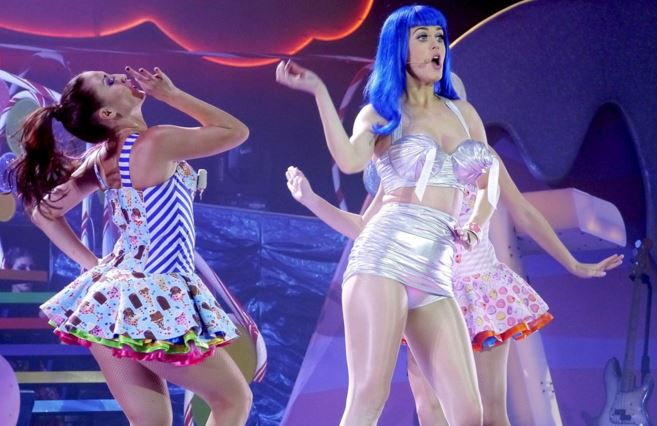
Taylor Swift earned more than KSh 10 billion, while her boyfriend DJ Calvin Harris made upwards of KSh 6 billion.
But there’s a problem. How do artists in other countries make so much money while their Kenyan counterparts are always complaining?
Is MCSK solely to blame?
While we all applaud Elani for their bravery, let us remember that they were the hottest trio in 2014. They obviously made some good money from other avenues, and blaming MCSK for their woes is totally hypocritical of them. The first person they should blame is their manager or themselves for making bad financial moves. So bad that they could not afford to produce a single song for a whole year.
At this point I’m sure you’ve already started cursing me, but let me explain… Or rather, Avril explained yesterday.
On her Instagram, she revealed how much she earned last year – Sh4,887.69 to be exact.

Obviously she was not as big as Elani, but is Sh4,000 the value of Avril’s work and name? Of course not. However, unlike other artists, she knows where exactly the problem lies.
She wrote,
100% of broadcast royalties are paid to the artists by MCSK. However artists don’t know that for you to maximize on royalty collections…. Your works must be played by a paying station.
Secondly as per MCSK tariffs, broadcasters are supposed to submit a percentage of their broadcast royalties from advertising to MCSK and this would have beefed up the royalties to the artists. However, this is not the case and all of them have resulted to paying the bare minimum of 24,000 per month for National TV and 72,000 for a National radio station.
Assuming about 40 radio stations pay and about 30 TV stations pay as well, where the bulk of the media houses fall under regional, thus their tariff is much lower. In total collection from broadcasters could result to a max of about 30 Million. Divide this amongst 10,000 members and you have about 3,000 shillings per artist for a whole year if a non scientific distribution is run. 3,000 shillings can barely afford a recording.
Remember, MCSK distribution runs from July to June of the following year. Which also determines how much airplay will be considered for a distribution. E. G. If an artist releases a song in May and the close of the year is in June. The amount of airplay that will be considered is only for two months for the broadcast royalties in that distribution year. The rest will be paid the following distribution year.
That is why an artist will say that their song has been receiving airplay but they only received very little in that year. In countries such as South Africa in which MCSK seconds in collection in Africa, the bulk of their collection comes from broadcast royalties where the media houses pay as much as 10% percent of their advertising revenues. In Kenya, MCSK tried it and media houses were up in arms thus they resulted in opting to pay the bare minimum. It is sad at this age and time when I see some artists fighting MCSK.
… It is sad at this age and time when I see some artists fighting MCSK when the facts clearly show that they should be joining hands to fight middlemen in the Skiza Deal, broadcasters that are not paying, adoption of percentage pegged tariffs on broadcasters as per their audited accounts in paying royalties to MCSK, public sensitization on why paying royalties is good citizenship rather than being coerced by use of police for them to pay for Music usage. Finally, MCSK ni sisi Wasanii, Let’s not destroy what was built on March 3rd 1982 for our own selfish interests. Mcsk is not perfect but we do believe everything will work out well for all the artists.
And therein lies the problem. Just imagine a station like NTV paying Sh24,000 for a whole month of playing local music. KTN, Citizen and K24 the same.
Just imagine KISS FM replaying Sura Yako twice per hour everyday for a whole month, and then paying Sh72,000, not for Sura Yako alone, but for all the music they’ve been recycling everyday.
This is totally unfair, and if any of those MPs or Senators who were sympathizing with Elani yesterday are worth their salt, they should make a law where media stations pay a percentage of their profit.
Currently, Royal media probably pays Sh10 million or less for all their TV and radio stations. If they were forced to pay say 10% of their profit, that could rise to up to upwards of Sh300 million.
Obviously when MCSK gave Elani an exra Sh300,000, that was a suspect move which shows maybe they are also not blameless. There is also the case when Diamond was paid Sh1 million by the board for a performance raising the question of wastage of artists’ money.
Maybe there is corruption at the board, and maybe if things were streamlined artists should receive a little more. But it’s pretty obvious the problem lies with the media stations which were ironically scrambling to publish and air Elani’s grievances.
But is the question of royalties unique to Kenya? Absolutely NO.
Last year, Taylor Swift threatened to boycott Apple Music because they were not planning to pay artists when subscribers opted for a free trial. In essence, free trials should be the company’s loss not the artist’s.
There has also been a never ending debate on just how much Spotify – the biggest music streaming site in the US, should pay artists.
Taylor Swift again pulled out her albums on the site citing meager pay.
While a few top artists do well on the site, many small and medium artists suffer. Spotify pays between $0.006 and $0.0084 per stream, which is basically 60 – 80 cents in Kenyan money. The sad fact is that payout does not all get to the singer. Record companies, distributors and others take their share and at the end of the day an artist gets at most 20% of that.
The Justin Biebers and Katy Perrys of the industry receive millions of streams in a year and can make a decent amount, but majority of musicians do not. Even 1 million streams on Spotify will not be enough to pay rent over there.
If you think the problem is only in online music, then here’s the shocker.
In the United States of America, Radio stations DO NOT pay a cent to artistes and performers. When the law was made a century ago, playing music on radio was considered promoting the artist.
However last year, Wil.I.am led a few other artists in urging Congress to amend that law and have them better compensated.
It is therefore curious that despite all this, American artists are the highest earners globally year after year.
Kenyans have a different interpretation of ‘living off music’. In the US, they capitalize on their popularity to make millions. They do tours, sell merchandise, movie deals etc.
While this may not be entirely possible in Kenya, some of it can be done. Elani can do concerts. Elani can sell T-shirts. And above all, Elani should not go one whole year without producing music.
That was entirely their fault, or the guy who managed their finances.
But that’s my opinion. What’s yours?
Who do you think is most responsible for Kenyan musicians’ woes?
